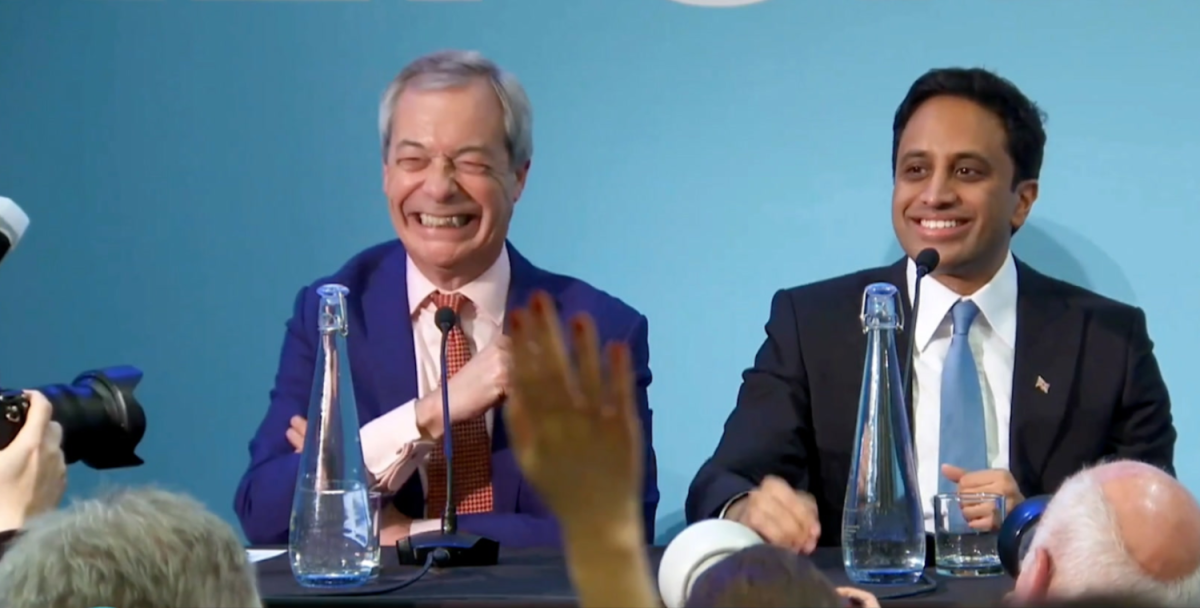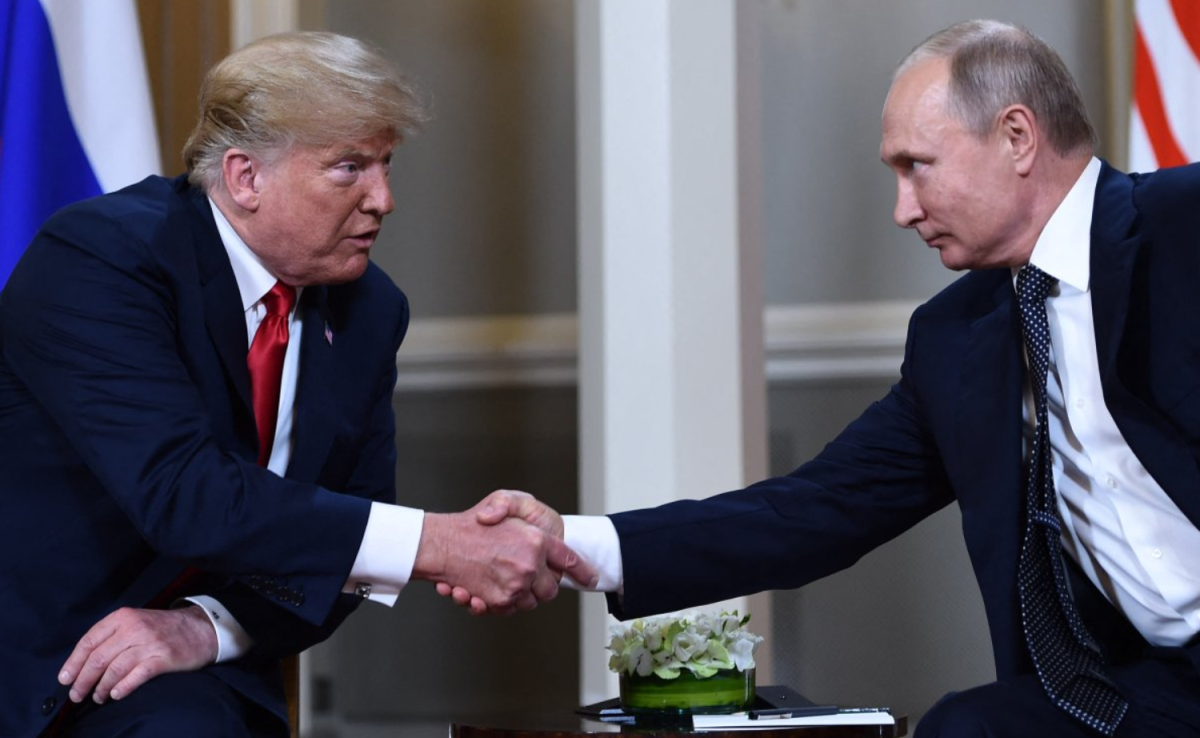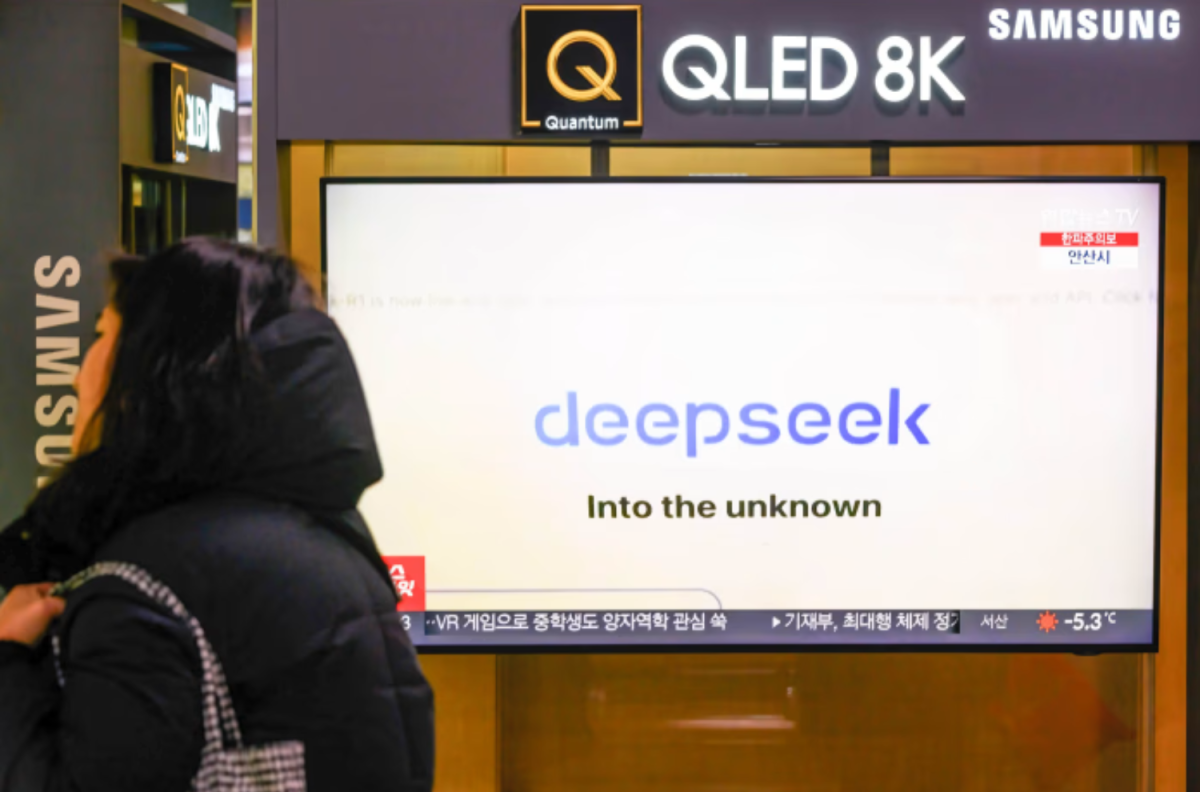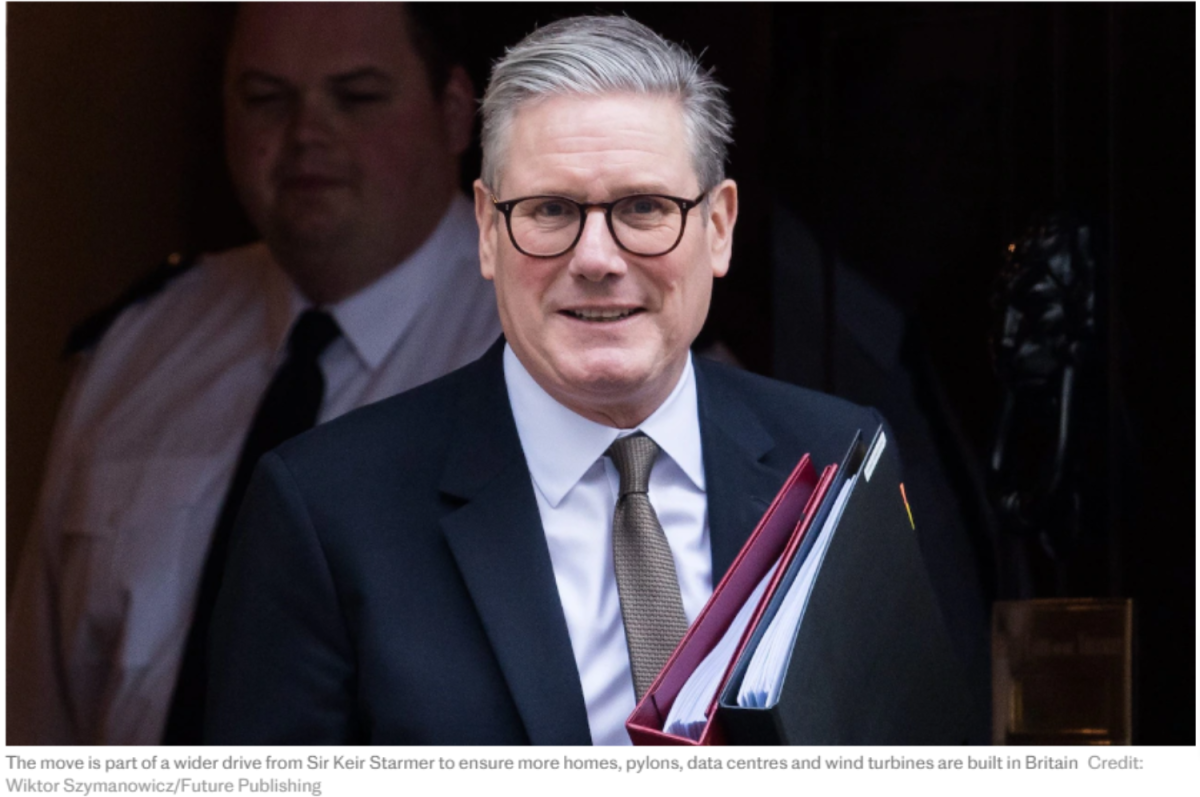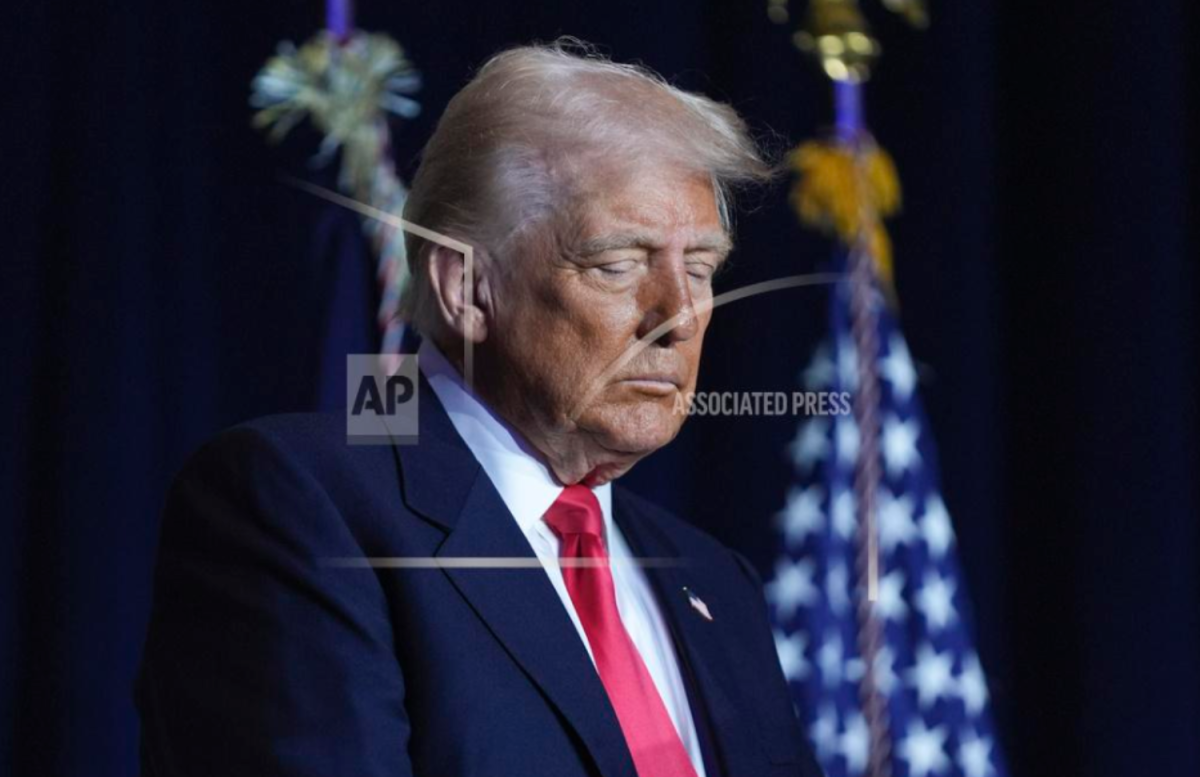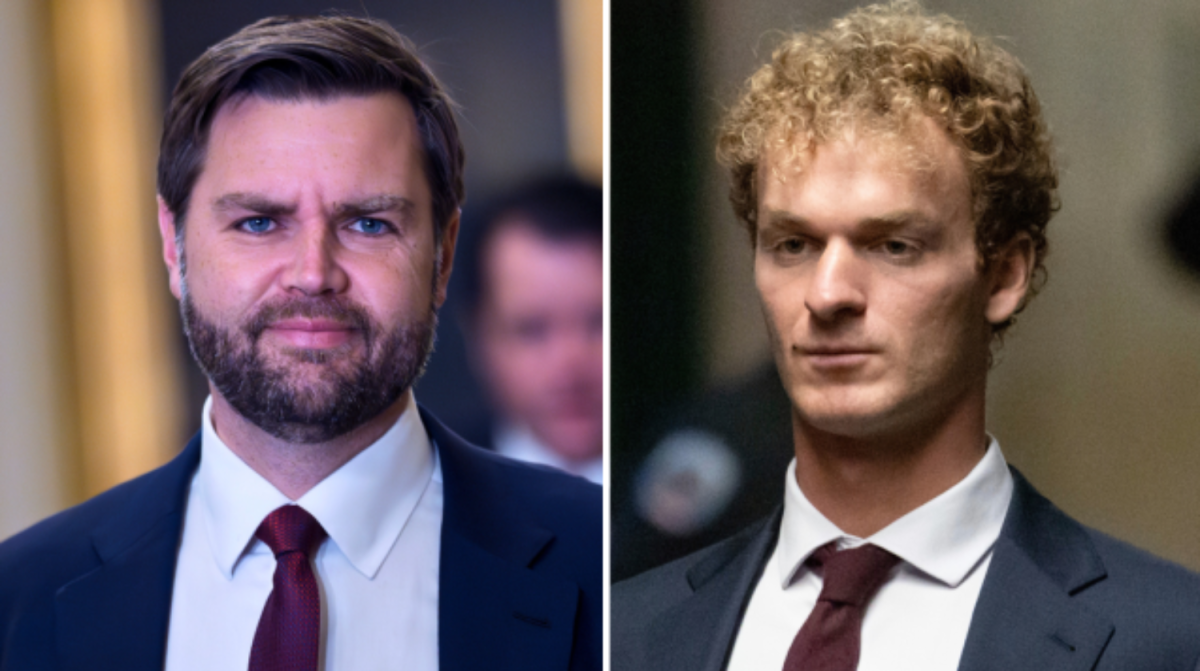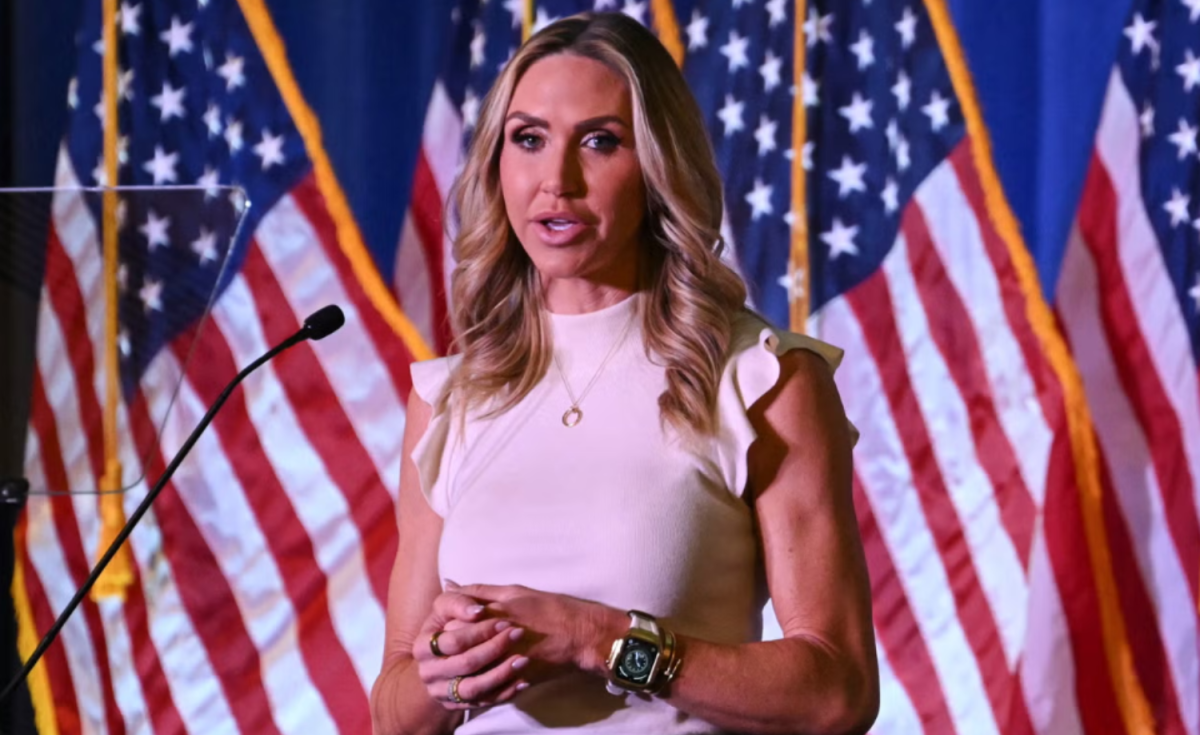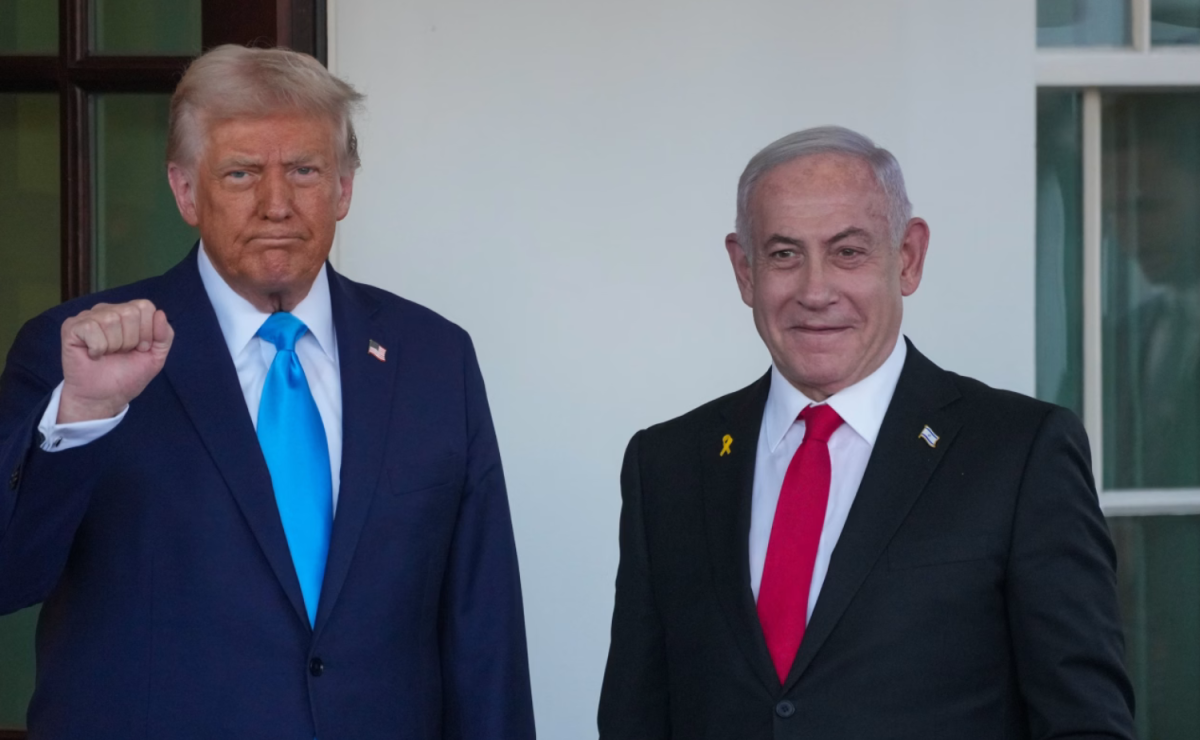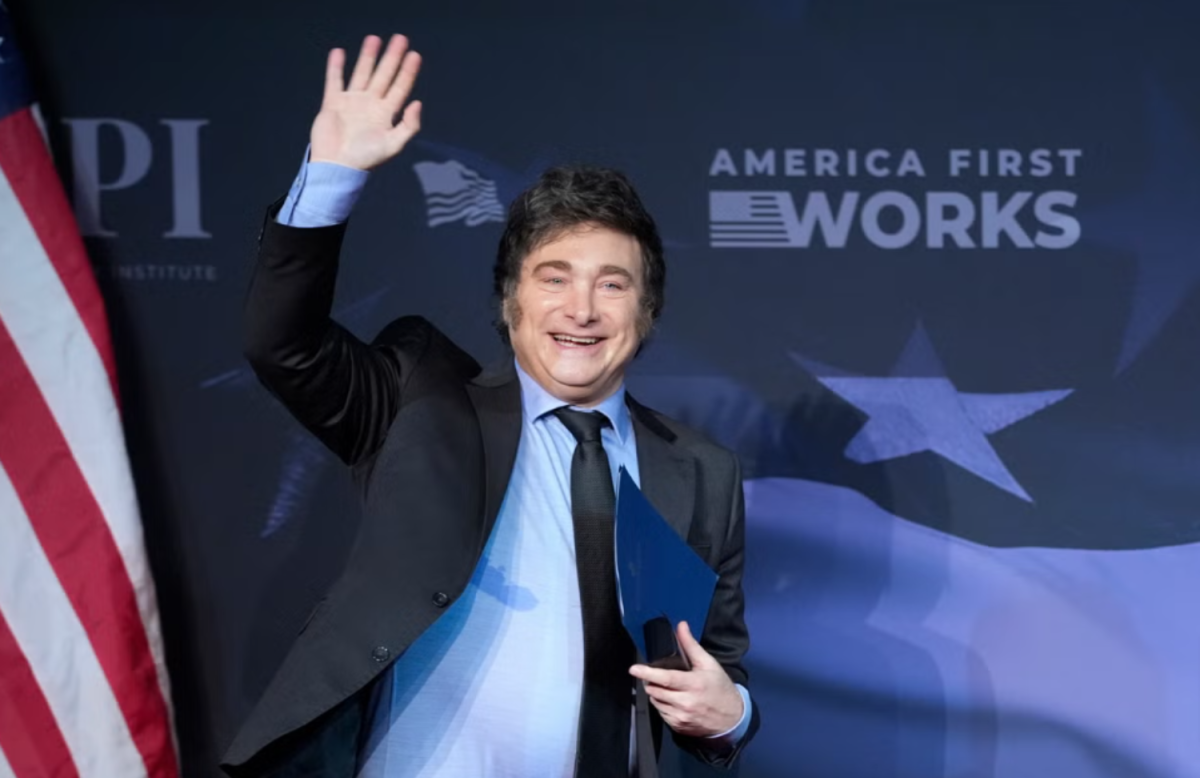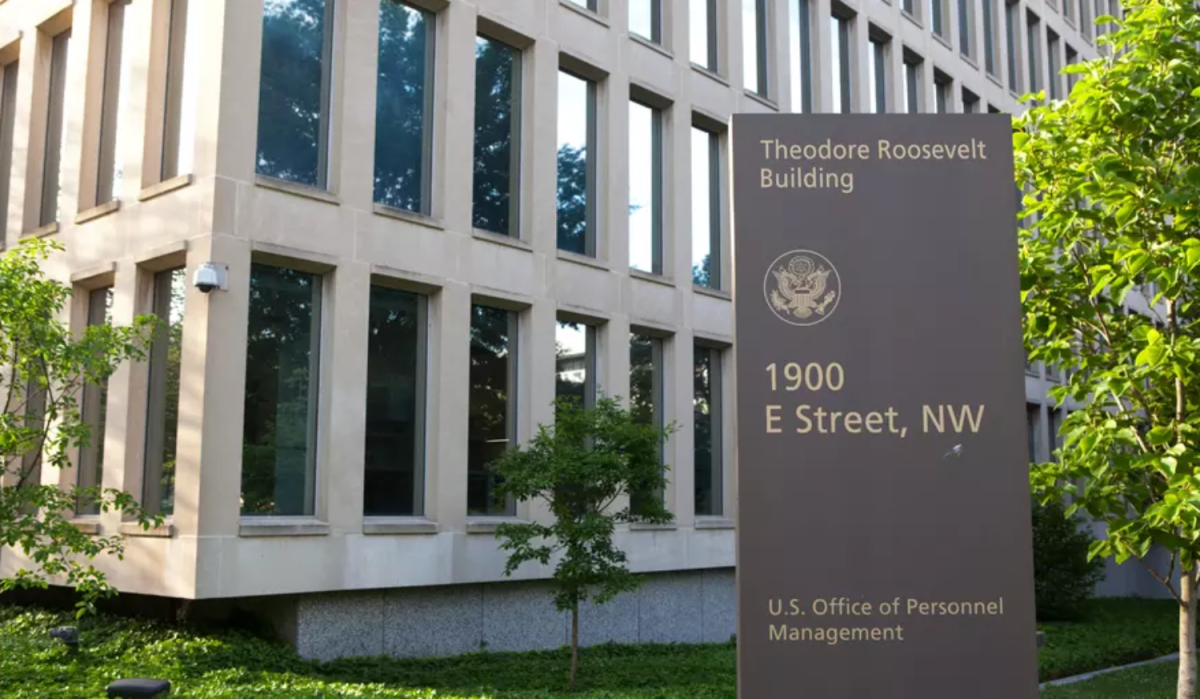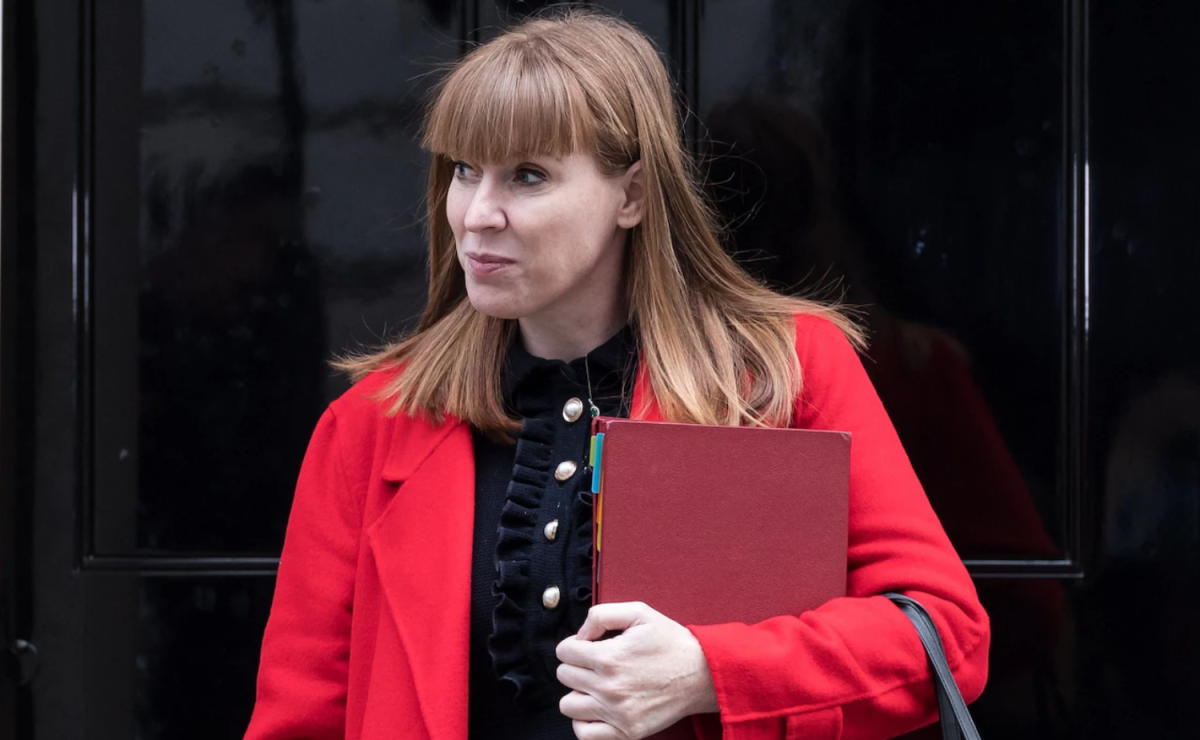-
Posts
9,982 -
Joined
-
Last visited
Content Type
Events
Forums
Downloads
Quizzes
Gallery
Blogs
Everything posted by Social Media
-
Angela Rayner’s meeting with those affected by the Grenfell Tower tragedy descended into chaos as she revealed that the devastated high-rise would be demolished to ground level. The deputy prime minister, who had anticipated a difficult conversation, reportedly grew flustered and defensive in the face of emotional and angry reactions from survivors and bereaved families. The atmosphere became so tense that she was eventually escorted from the room by security. The meeting, held near the remains of Grenfell Tower, was expected to address the fate of the building where 72 people lost their lives in 2017. Though an announcement had been anticipated, Rayner’s firm statement that the structure would be dismantled entirely took many in attendance by surprise, prompting an audible gasp from the room. For those who consider Grenfell’s charred remains a sacred site, the sudden finality of her words was deeply unsettling. Despite acknowledging the gravity of the decision, Rayner quickly found herself overwhelmed by a wave of anger. According to one person present, the discussion became a “car crash,” with raised voices and mounting frustration. “It was such a horrible meeting,” said Karim Mussilhy, vice-chairman of Grenfell United, an advocacy group for survivors and bereaved families. “She’s just gone about it completely the wrong way. And I think they’ve completely messed up the relationship with the Grenfell families.” Mussilhy recalled that Rayner was repeatedly questioned about how many families had been consulted before the decision was made, but she was unable to provide an answer. “You could see she was getting quite flustered and angry, and then shortly after that she was escorted out of the room,” he said. At one point during the meeting, those present were asked to raise their hands if they had been directly consulted about the demolition. Very few did. The outrage in the room was not just about the decision itself but about how it had been reached. Many attendees felt that, once again, their voices had been disregarded—a painful echo of past failures by those in power. A public inquiry last year determined that the deaths in the Grenfell fire were preventable, the result of systemic neglect spanning decades. Residents had repeatedly raised safety concerns, but politicians failed to act. The announcement regarding the tower’s fate follows years of inaction by Conservative ministers, who had delayed a final decision until now. In 2019, structural engineers recommended demolishing the building at least down to the tenth floor due to concerns over the stability of its upper sections. Although the tower is currently secure, experts warned that the internal concrete will degrade over time due to weather exposure, making demolition increasingly dangerous the longer it is postponed. Some survivors had proposed a compromise: demolishing the top floors while preserving the lower section to incorporate into a permanent memorial. Emma O’Connor, who lived on the 20th floor and escaped the fire, voiced support for this approach. Speaking to the BBC, she explained, “We understand it’s unsafe, but if it’s out of sight, it will definitely be out of mind for those responsible for the tragic deaths.” Rayner had conducted several consultation meetings in January, but the process was widely criticized as chaotic. Some families did not receive letters informing them of the meetings, while last-minute schedule changes left others unable to attend. Many had hoped to be properly consulted before a final decision was made, but this did not happen. When Rayner finally confirmed that the tower would be taken “to the ground,” the room erupted in shock and anger. Sitting at the back, Mussilhy stood up and asked how many families she had spoken to before making the decision. “She turned around and said, ‘I can’t, I can’t give you that.’ Everyone got really upset and angry.” He added, “We understand it’s inevitable that the tower can’t remain the way it is indefinitely. But you need to have a meaningful consultation and conversation with the bereaved families. Our families’ remains are still embedded in that concrete.” For many in the community, the handling of this announcement has only reinforced the feeling that they are still being ignored—just as they were before the tragedy unfolded. Based on a report by The Times 2025-02-08
-
The Conservative Party is facing a major crisis as a new poll suggests that a third of its 2024 voters have now switched allegiance to Nigel Farage’s Reform UK. This seismic shift in support has propelled Reform to the top of the polls, tying with Labour and surpassing the Tories, dealing a fresh blow to Kemi Badenoch’s leadership. A weekly tracker poll conducted by Techne UK for *The Independent* reveals that 33% of those who backed the Conservatives last year have now thrown their support behind Reform UK. For the first time, Reform has drawn level with Labour, mirroring findings from a YouGov poll earlier this week. The latest numbers show Reform climbing by one percentage point to 25%, while Labour has dropped one point to the same level. Meanwhile, the Conservatives remain stagnant at 23%, trailing by two points. Another poll by FindOutNow paints an even bleaker picture for the Tories, placing Reform at 29%, four points ahead of Labour (25%) and a significant 11 points clear of the Conservatives, who have slumped to just 18%. The Liberal Democrats have risen by one point to 13%, while the Greens remain unchanged at 7%. Reacting to the surge in support for his party, Farage called the polling figures “astonishing,” particularly as they come just after he launched a campaign against Labour’s decision to cancel numerous local election contests in May. The deepening rift within the Conservative Party is becoming increasingly evident. While shadow justice secretary Robert Jenrick, a former leadership contender, has refused to rule out a potential deal with Reform, Badenoch’s spokesperson has categorically dismissed any such possibility. The Tory leader has instead responded by unveiling a stringent immigration policy aimed at discouraging low-paid workers from entering the UK—an apparent attempt to reclaim voters who have drifted towards Reform’s hardline stance. However, Badenoch’s strategy may not be enough to quell the growing discontent within her party. The latest poll results have only intensified the murmurs of dissent, with questions mounting over her leadership just three months into her tenure. Michela Morizzo, chief executive of Techne UK, described the situation as a moment of reckoning for the Tories. “Our regular tracker poll this week brings continued success for Nigel Farage’s Reform UK, who are for the first time neck and neck with the Labour Party. The Conservatives stay steady at 23% of the national vote, but this does mean they are now two points behind both Labour and Reform,” she said. Morizzo warned that without immediate action, the Conservatives risk becoming uncompetitive in future elections. “At this time, looking towards the next by-elections too, the Tories should do some soul-searching by analysing the reason for this situation. If nothing is done, the risk for the Conservative Party is to lose the appeal and no longer be competitive in the electoral challenges. And this must be done now—time flies, and watchful waiting is not the right strategy, in this historical moment in particular.” With Reform UK making unprecedented gains and Badenoch struggling to contain the crisis, the political landscape is shifting dramatically. Whether the Conservatives can recover from this exodus of voters remains uncertain, but the urgency for decisive action has never been greater. Based on a report by The Independent 2025-02-08
-
Russia is prepared to drive a tough negotiation with U.S. President Donald Trump over Ukraine, according to Deputy Foreign Minister Sergei Ryabkov, who made the statement on Wednesday. The senior Russian diplomat discussed the possibility of Trump facilitating peace talks between Russia and Ukraine, as outlined in remarks published on the Russian Foreign Ministry’s website. Trump has repeatedly vowed to bring an end to the war in Ukraine, now approaching its third year. Trump has indicated that both Russia and Ukraine would need to make compromises to achieve peace. However, Kyiv has firmly rejected the idea of surrendering any of its territory to Moscow, while Putin has continued to insist that Ukraine must abandon its ambitions of joining NATO. Ryabkov stated that Russia remains "open to dialogue and ready to negotiate [with the U.S.] through a hard bargain while taking into account the 'realities on the ground' and our national interests." He emphasized that Washington must take the first step in improving U.S.-Russia relations, which have significantly deteriorated since Moscow launched its full-scale invasion of Ukraine in February 2022. "It is up to [Donald] Trump and his team to make a decision," Ryabkov added. While the Kremlin has confirmed that it has reached out to Trump’s team for talks, it has not clarified whether Putin and Trump have directly communicated about the war in Ukraine. Sean Monaghan, a visiting fellow at the Center for Strategic & International Studies (CSIS), a Washington-based think tank, noted that Trump’s unpredictable nature and deal-making style could potentially help Ukraine negotiate a ceasefire on more favorable terms. "His temperament and character, combined with shifting political, military, and economic conditions around the war, could make an ultimatum strategy viable again," Monaghan wrote. Bloomberg reported on Wednesday, citing sources familiar with the matter, that U.S. allies anticipate the Trump administration will unveil a proposal to end the war at the upcoming Munich Security Conference in Germany. Kremlin spokesperson Dmitry Peskov told reporters on Wednesday, "There are indeed contacts between individual departments, and they have intensified recently, but I cannot tell you any other details." Trump is expected to meet with Putin soon. Speaking to reporters on Sunday, he confirmed that talks are planned "with various parties, including Ukraine and Russia." "We'll be speaking, and I think we'll perhaps do something that'll be significant. We want to end that war," he stated last week. Based on a report by Newsweek 2025-02-08
-
Even brief exposure to air pollution can disrupt cognitive functions essential for daily life, a new study has revealed. Researchers have found that air pollution can impair a person’s ability to interpret emotions, focus on tasks, and engage in social situations, shedding new light on the broader dangers of environmental toxins beyond their well-documented effects on the respiratory and cardiovascular systems. Published in *Nature Communications*, the study demonstrates that short-term exposure to high levels of air pollution can immediately reduce cognitive performance. "Our study provides compelling evidence that even short-term exposure to particulate matter can have immediate negative effects on brain functions essential for daily activities such as doing the weekly supermarket shop," said Dr. Thomas Faherty, a researcher at the University of Birmingham and co-author of the study. To measure the impact of air pollution on cognitive function, participants were exposed either to high levels of air pollution, simulated using candle smoke, or to clean air. Researchers then tested their cognitive performance before exposure and again four hours later, focusing on working memory, selective attention, emotion recognition, psychomotor speed, and sustained attention. While working memory remained unaffected, selective attention and emotion recognition declined significantly following exposure to polluted air. These effects were observed regardless of whether participants inhaled through their mouths or noses, indicating that the route of inhalation played no significant role in the cognitive impact. Scientists believe that inflammation triggered by particulate matter, a major component of urban air pollution, could be responsible for these impairments. While working memory appears more resilient to short-term exposure, attention and emotional processing are particularly vulnerable. "Poor air quality undermines intellectual development and worker productivity, with significant societal and economic implications in a high-tech world reliant on cognitive excellence," said Professor Francis Pope from the University of Birmingham, another co-author of the study. He warned that reduced productivity could impact economic growth, underscoring the urgent need for stricter air quality regulations and public health initiatives to combat pollution’s effects on brain health, particularly in urban environments with high pollution levels. Selective attention is a crucial cognitive skill, enabling individuals to focus on goal-oriented tasks, such as navigating a grocery store while ignoring distractions. Emotion recognition, another essential function, allows people to interpret social cues and respond appropriately in interpersonal interactions. The study highlights the importance of understanding how air pollution affects these critical mental processes and calls for further research into how different pollution sources influence brain health, especially in vulnerable populations like older adults and children. Professor Gordon McFiggans from the University of Manchester stressed the significance of this research in protecting at-risk groups. "This study shows the importance of understanding the impacts of air pollution on cognitive function and the need to study the influences of different sources of pollution on brain health, particularly in vulnerable older members of society," he said. Air pollution remains the leading environmental health risk worldwide, contributing to premature mortality and various diseases. Fine particulate matter (PM2.5), one of the most harmful pollutants, was linked to 4.2 million deaths in 2015 alone, according to the World Health Organization (WHO). The WHO advises that PM2.5 concentrations should not exceed 15 micrograms per cubic meter over a 24-hour period, with an annual limit of 5 micrograms per cubic meter. However, pollution hotspots such as Delhi frequently report levels as high as 249 micrograms per cubic meter, vastly exceeding recommended safety limits. The study’s authors emphasize the need for further research to determine how different pollution sources affect cognitive function and to identify protective measures that could mitigate these effects. They urge policymakers to recognize air pollution as a cognitive health issue, not just a respiratory or cardiovascular one. "Our brains are just as vulnerable to environmental toxins as our lungs, and it's time public health policies reflect that reality," Dr. Faherty warned. Based on a report by The Independent 2025-02-08
-
WASHINGTON—A bipartisan effort is underway to ban the DeepSeek chatbot application from all government-owned devices due to fears that the app could provide user data to the Chinese government. The bill, set to be introduced Thursday, is spearheaded by Representatives Darin LaHood, a Republican from Illinois, and Josh Gottheimer, a Democrat from New Jersey. The move mirrors past congressional action against TikTok, which led to the app's prohibition on government devices and initiated efforts to block its operations in the U.S. "This should be a no-brainer in terms of actions we should take immediately to prevent our enemy from getting information from our government," Gottheimer said. DeepSeek, a Chinese AI company that burst onto the scene just last month, has rapidly become the most downloaded app in the U.S. The company’s decision to release its AI models as open-source software contributed to its immediate popularity among businesses, developers, and consumers. However, concerns have emerged over its potential risks to data security. An analysis conducted by Ivan Tsarynny, CEO of Feroot Security, a firm specializing in data protection and cybersecurity, revealed that the chatbot contains concealed code capable of transmitting user login information to China Mobile, a state-owned telecommunications company banned from operating in the U.S. The Associated Press had previously published Tsarynny’s findings. "Our personal information is being sent to China, there is no denial, and the DeepSeek tool is collecting everything that American users connect to it," Tsarynny stated in an interview. This revelation prompted LaHood and Gottheimer to craft legislation aimed at blocking DeepSeek from government networks. Both lawmakers hold key positions on a subcommittee of the House Select Committee on Intelligence, making them central figures in U.S. cybersecurity oversight. "Under no circumstances can we allow a CCP company to obtain sensitive government or personal data," LaHood emphasized, referring to the Chinese Communist Party. Several countries have already moved to restrict DeepSeek's access to government systems. On Tuesday, Australia announced a ban on the app from its government networks, citing data-security concerns. Key ministries in South Korea implemented similar restrictions this week, and Italy had already done so in January. Some federal agencies, including the U.S. Navy and NASA, have already blocked the app due to security and privacy concerns. Texas was the first U.S. state to implement a ban on DeepSeek for government devices, citing national-security risks. The approach taken against DeepSeek closely resembles Congress’s actions against TikTok in 2022 when the app was banned from government devices as part of a spending bill. Lawmakers were concerned that the Chinese government could access user data, leading to further efforts to prohibit the app entirely unless it severed ties with its Chinese parent company, ByteDance. Although Congress passed legislation requiring TikTok to secure an American buyer, the deadline passed without a sale. In response, President Trump extended the timeframe for TikTok to divest its U.S. operations. The company has repeatedly denied sharing American user data with the Chinese government, asserting that it would not comply with such a request. Based on a report by WSJ 2025-02-08
-
Prime Minister Sir Keir Starmer has vowed to push past “Nimbyism” as he lifts restrictions on where nuclear power plants can be built across England. The move is intended to accelerate the approval of a wave of "mini" nuclear reactors, with the first expected to be operational by 2032. Starmer’s broader initiative aims to override opposition to key infrastructure projects, including housing developments, wind farms, data centers, and pylons, as his government seeks to cut through red tape. The UK has not constructed a new nuclear power station since 1995. Under current regulations, nuclear plants can only be built in eight designated areas in England and Wales. These restrictions will now be scrapped, allowing more sites to be considered for nuclear expansion. While the move is being positioned as a step toward securing the country’s energy future and ensuring a clean power supply, it will also bar Chinese firms from investing in the projects. Despite Starmer’s confidence, some Labour MPs—particularly those representing rural constituencies—are privately concerned that large-scale development in their areas could weaken their chances of re-election. Addressing these concerns on Wednesday, the Prime Minister made clear his intention to challenge opposition. “By going for more sites than the eight, then obviously you’re opening up more space. There’s no point us pretending otherwise," he said. "That means there is the potential now for nuclear sites in places where, until now, it wasn’t thought they would ever be. We do have to push past the Nimbyism, and we’re going to do so on housing and other infrastructure.” To ease local opposition, the government may offer discounted energy bills to residents near newly built nuclear plants. A similar incentive has already been introduced for onshore wind farms under Starmer’s administration. The changes are being made to the “national policy statement,” which has not been updated since 2011. This document serves as a key guideline for councils, planning inspectors, and courts when assessing infrastructure projects. Under current rules, new nuclear power stations are permitted only in Bradwell, Hartlepool, Heysham, Hinkley Point, Oldbury, Sellafield (Moorside), Sizewell, and Wylfa. The revised policy will remove site-specific limitations while maintaining restrictions on construction in densely populated areas and near military installations. The usual planning process for projects categorized as critical national infrastructure will remain in place, allowing communities to voice objections. However, the Prime Minister suggested that his party’s significant parliamentary majority would provide the necessary leverage to advance these initiatives. “We have got the advantage of a big majority to help us. There’s a window here which, to be fair, we haven’t had that big working majority in Parliament for a long time now,” Starmer stated. The policy changes will not directly impact Scotland or Northern Ireland, where devolved governments set their own nuclear energy policies. However, in England and Wales, the removal of site restrictions marks a major shift in nuclear planning regulations. Investment from Chinese companies, whether state-backed or private, is unlikely to be welcomed in the construction of these new power stations, according to the Prime Minister. This follows the government’s ongoing efforts to limit Chinese involvement in critical national infrastructure. Based on a report by Daily Telegraph 2025-02-08
-
Kanye West ignited a storm of controversy on Thursday night, launching into a shocking anti-Semitic, sexist, and homophobic rant while also claiming to have control over his wife, Bianca Censori. The rapper, 47, left fans confused as he also made a bizarre plea to former President Donald Trump, urging him to free rapper Diddy from prison. West first faced accusations of anti-Semitism in 2022 after making inflammatory remarks. He later issued an apology, stating he never intended to offend or demean the Jewish community. However, in a dramatic reversal, the rapper took to social media to double down on his views, stating that he would never “trust or work with Jewish people” again and that he would not apologize for his beliefs. Among his most shocking statements, West boldly declared: "I AM A NAZI," later adding, "I LOVE HITLER NOW WHAT B*****S." Concerns over his treatment of Bianca Censori escalated after he addressed speculation that she is a victim of coercive control. West claimed he had "dominion" over his wife, following her controversial nude appearance at the Grammys. In a string of increasingly aggressive posts, West seemed prepared to face the consequences of his remarks, stating, "IF I LOST EVERYTHING AGAIN TONIGHT WAS WORTH IT I CAN DIE AFTER THIS." He insisted that he was sober while making these statements and vowed to cut ties with anyone who disagreed with him, using homophobic slurs to attack those who support Vice President Kamala Harris. West's tirade escalated as he issued a violent warning, writing, "ANY N*A COME IN MY FACE AN ASK ME ABOUT THAT PUFF ST IM STEALING OFF THEM IMMEDIATELY I DONT GIVE A F**K IF YOU 8 FEET TALL IMA JUMP AND STEAL OFF YOU." He also lashed out at what he called "woke" culture, taking issue with plus-size models in fashion shows. In a message that name-dropped singer Adele, he wrote, "FK ALL THIS WOKE ST THEY PUTTING FAT B*S ON THE RUNWAY NOBODY WANNA SEE THAT ST ITS UNHEALTHY IT PROMOTES OBESITY AND THE WILD ST IS IF THE FAT B*****S LOOSE WEIGHT THEN THEY LOOSE THEIR ACCEPT FOR ADELLE CAUSE SHE ACTUALLY HAS ANOTHER TALENT THEN BEING USED AS A PAWN FOR POLITICAL AGENDAS [sic]." West then turned his attention back to his anti-Semitic rhetoric, retracting his previous apology and raging against Jewish businesspeople, stating, "IM NEVER APOLOGIZING FOR MY JEWISH COMMENTS I CAN SAY WHATEVER THE FK I WANNA SAY FOREVER WHERES MY F*ING APOLOGY FOR FREEZING MY ACCOUNTS SUCK MY D**K HOWS THAT FOR AN APOLOGY." Continuing his unfounded claims, he accused the Jewish community of targeting Black and Latino children through abortion, writing, "BE CLEAR YOU JEWISH N****S DONT RUN ME NO MORE THIS IS A FREE COUNTRY AND THIS IS MY FREE OPINION YOU ABORT BLACK CHILDREN FOR STEM CELLS ABORTION IS MURDER AND ITS PUSHED ONTO THE BLACK AND LATINO COMMUNITIES." West made it clear that anyone who disagreed with him should not work for him, stating, "AMY JEWISH PERSON THAT DOES BUSINESS WITH ME NEEDS TO KNOW I DONT LIKE OR TRUST ANY JEWISH PERSON AMD THIS IS COMPLETELY SOBER WITH NO HENNESY [sic]." His rant initially began with a focus on rapper Diddy, who has been in prison on sex trafficking and racketeering charges, which he vehemently denies. Addressing Diddy, West tweeted, "FREE PUFF," before accusing celebrities of abandoning him. He wrote, "ALL THESE CELEBRITY N****S AND BS IS PY YALL A WATCH OUR BROTHER ROT AND NEVER SAY ST." Comparing his situation to Diddy's, West referenced the rapper’s falling out with Diageo, the global beverage company that distanced itself from him. Using racist slurs, he added, "ALL YOU PLEEEEEASE COME AT ME THATS HOW WE SPOT THE KS LET THESE WHITE PEOPLE AND JEWISH PEOPLE TELL YOU WHAT TO DO AND SAY FK DIAGEO AND F**K ALL YALL N***S IN ADVANCE." West also suggested launching a clothing collaboration between his Yeezy brand and Diddy's Sean John label, claiming they would "split the profits 50/50." He argued that Diddy's legal troubles were a racial issue, stating, "JUST FOR CLARITY THEY TYRING TO MAKE AN EXAMPLE OUT OF PUFF ME AND MY BROTHER HAD OUR ISSUES BUT THESE WHITE PEOPLE TRYING TO USE PUFF TO SCARE N****S IM NEITHER SCARED NOR BRAVE THIS JUST ME." In addition to his Twitter rant, West took to Instagram to demand Trump intervene on Diddy’s behalf, tagging the former president with the message, "FREE DIDDY." From behind bars, Diddy responded by reposting West’s messages, writing, "Thank you to my brother @Ye," and linking to Yeezy. West’s actions have led to widespread condemnation, recalling his previous fall from grace in 2022 when major brands such as Adidas, GAP, and Universal severed ties with him following similar anti-Semitic outbursts. Despite losing lucrative deals, West remains defiant, writing, "WHAT YALL GONE DO CANCEL MY SNEAKER DEAL CANCEL MY RECORD DEAL FREEZE MY ACCOUNTS FK ALL YALL N****S SLAVERY IS A CHOICE IM SPEAKING MY MIND NOW I AINT EDITING ST AGAIN EVER." West’s latest tirade has once again drawn intense backlash, with many calling for further consequences over his incendiary statements. Based on a report by The Daily Mail 2025-02-08
- 145 replies
-
- 14
-

-

-

-

-

Autogolpe (coup against the Constitution)
Social Media replied to placeholder's topic in Political Soapbox
Topic has been edited according to the forum rules. A re write cannot be accepted. 27. You will not post any copyrighted material except as fair use laws apply (as in the case of news articles). Only post a link, the headline and three sentences from the article. Content in the public domain is limited to the same restrictions. -

Trump’s Bold Proposal to End Gaza’s Cycle of Suffering
Social Media replied to Social Media's topic in World News
A number of posts making unsubstaniated claims of evictions have been removed along with responses. -

Trump’s Bold Proposal to End Gaza’s Cycle of Suffering
Social Media replied to Social Media's topic in World News
posts advocating for no Israel, a call that echo's Hamas have been removed. @OneMoreFarang -
President Donald Trump has signed an executive order sanctioning the International Criminal Court, accusing it of "illegitimate and baseless actions targeting America and our close ally Israel". The sanctions target individuals assisting the ICC in its probes into American citizens or allied nations, affecting them financially and restricting their visas, as well as extending to their family members. A White House fact sheet circulated earlier on Thursday accused the Hague-based ICC of creating a "shameful moral equivalency" between Hamas and Israel by issuing the warrants at the same time. Trump's executive order said the ICC's recent actions "set a dangerous precedent" that endangered Americans by exposing them to "harassment, abuse and possible arrest". "This malign conduct in turn threatens to infringe upon the sovereignty of the United States and undermines the critical national security and foreign policy work of the United States government and our allies, including Israel," the order said. It adds that "both nations [the US and Israel] are thriving democracies with militaries that strictly adhere to the laws of war". The US is not a member of the ICC and has repeatedly rejected any jurisdiction by the body over American officials or citizens. This action follows the ICC’s decision last year to issue arrest warrants for Israeli Prime Minister Benjamin Netanyahu, along with other Israeli and Hamas officials. In an effort to counter the court’s actions, Senate Republicans recently introduced a bill to sanction the ICC, but it was blocked by Senate Democrats. Senate Minority Leader Chuck Schumer criticized the legislation, describing it as "poorly drafted" and "deeply problematic." This is not the first time Trump has taken measures against the ICC. During his first presidency, in June 2020, he imposed sanctions on senior officials of the court as it investigated allegations of war crimes committed by U.S. forces in Afghanistan. The Trump administration accused the ICC of undermining U.S. national sovereignty, with Trump warning that any individuals supporting the investigation would "risk exposure to sanctions" themselves. The order granted the U.S. authority to freeze the assets of ICC employees and deny them entry into the country. The ICC denounced the move, calling it an attack on international justice and the rule of law. These sanctions remained in place until April 2021, when they were lifted by the Biden administration. Former U.S. Secretary of State Antony Blinken at the time criticized the sanctions, calling them "inappropriate and ineffective," and advocated for greater cooperation with the ICC. Based on a report by BBC 2025-02-08
-

Trump’s Bold Proposal to End Gaza’s Cycle of Suffering
Social Media replied to Social Media's topic in World News
Posts using derogatory and toxic nicknames or intentional misspelling of people’s names will be removed. If you don’t want your post to be removed, spell people’s names correctly, this applies to both sides of the political debate. -
Vice President Vance has expressed his approval following the announcement that Andreessen Horowitz, a well-known venture capital firm, has hired Daniel Penny. Penny, a Marine veteran, was acquitted just two months ago of a negligent homicide charge in New York City. “Incredible news,” Vance wrote in a post on X, reacting to the report, which was initially published by Bari Weiss’s The Free Press. Penny, who had previously studied architecture, was found not guilty in December 2024 by a jury on a criminally negligent homicide charge. The case stemmed from an incident in May 2023, in which Penny placed 30-year-old Jordan Neely, a homeless man who had been shouting at passengers on a New York subway, in a chokehold for several minutes. Originally charged with manslaughter, Penny’s trial ended in an acquittal. Speaking after the verdict, Penny told Fox Nation host Jeanine Pirro that he had acted out of fear for his safety and that of others. “He was just threatening to kill people. He was threatening to go to jail forever, go to jail for the rest of his life,” Penny said in the December interview. “And now, where I’m on the ground with him, I’m on my back in a very vulnerable position if I would have just let go.” The high-profile case captured significant media attention and became a divisive topic in New York City and beyond. David Ulevitch, a general partner at Andreessen Horowitz, addressed Penny’s actions in an internal memo announcing the hire. According to The Free Press, Ulevitch acknowledged Penny’s controversial past but emphasized the firm’s broader perspective on individuals. “I believe, as I know many of you do, that Daniel acted with courage in a tough situation,” Ulevitch reportedly wrote. “He was acquitted of all charges. Beyond that, it has always been our policy to evaluate the entire person and not judge them for the worst moment in their entire life.” He went on to state, “We believe in Daniel and are excited to have him as part of our team.” Penny has joined the firm’s “American Dynamism” team, which the company describes as a network of civic-minded entrepreneurs tackling America’s biggest challenges. The firm’s website lists Penny as a “Deal Partner” on the team. In his memo, Ulevitch elaborated on Penny’s role at the firm, stating that he would “learn the business of investing” and support portfolio companies. He also suggested that Penny’s experience and background could help foster relationships with the Department of Defense and the public safety sector, The Free Press reported. Based on a report by The Hill 2025-02-07
-
"I have so much money now that I could hire someone to kill you, and nobody would know. No-one would miss you. No-one would know anything." Former music executive Daniel Evans vividly recalls hearing these chilling words from Sean "Diddy" Combs—then known as Puff Daddy—directed at a colleague in 1997. It happened inside the New York office of Bad Boy Records, Combs’s Grammy Award-winning music label. Nearly 30 years later, Combs’s empire is in tatters as he awaits trial on sex trafficking and racketeering charges, while also facing numerous lawsuits accusing him of drugging and assaulting individuals at lavish parties, upscale hotels, and even in his recording studio. He denies all allegations. In an exclusive investigation, the BBC has spoken with over 20 individuals who worked at Bad Boy Records during its meteoric rise in the 1990s—including former executives, assistants, and producers. They have come forward to share troubling incidents they claim to have witnessed. Among them is a former client who alleges that Combs raped her on the bathroom floor at a promotional party for The Notorious B.I.G. in 1995. In her lawsuit, she claims that after the assault, Combs warned her not to speak of it, saying, “You will disappear.” Jimmy Maynes, who worked closely with Combs, recalls his volatile temperament in the office. He describes moments when Combs would slam his hands against the desk like a "bratty kid" and erupt in anger if things did not go his way. Combs’s career took off after he was fired from Uptown Records at just 23 years old. He then founded Bad Boy Records, where he quickly became known for his relentless work ethic. "He's the hardest working man that I've ever met and always wanted people to match his energy," says Daniel Evans, who managed Bad Boy’s recording budgets and artists' contracts from 1994 to 1997. Combs often compared himself to "The Great Gatsby" and built a reputation for throwing extravagant parties—whether at exclusive New York nightclubs, on the beaches of Cancun, or at his infamous "White Parties" in the Hamptons, where guests were required to wear all white. "Bad Boy Records was a crazy house with a lot of young people who wanted to touch the King's robes," recalls one former employee. According to former staff, the label was predominantly run by young executives and a large group of interns, some of whom were still in school. They also allege that sexual relationships between employees and interns were common. Additionally, Evans claims that artists and staff would arrange for women to be flown in to have sex at the studio. "If they had a [sexual] specialty in something, they would be flown in," he says, adding that he knew about it because he controlled the budgets. The cost of these flights, he alleges, was recorded under travel expenses. Many former staff members struggle to reconcile these allegations with the man they once knew. "These accusations are a surprise to me, as I am sure it is to many of our circle," says Jeffery Walker, a close friend of Combs and a member of Bad Boy’s original production team. "I've been to White Parties and of course studio sessions, and none of what he is accused of went down in my sight." Evans, too, was initially skeptical—until he saw footage of Combs’s ex-partner, Casandra Ventura, being brutally beaten by him in a Los Angeles hotel in 2016. Ventura was the first to sue Combs in November 2023, alleging he had subjected her to a cycle of abuse, violence, and sex trafficking throughout their 10-year relationship. Combs settled the lawsuit the following day for an undisclosed sum. "It's not the first time I've seen that temper," Evans says, recalling the 1997 death threat he claims to have witnessed. "It's hard to see. The guy in the video with Cassie is almost identical to the guy who threatened the employee. So, you wonder, has anything changed?" Over the years, Combs has continuously reinvented himself—from Puff Daddy to P. Diddy and, more recently, to "Love." In a 2015 interview, he explained his different personas: "If I'm acting crazy, like 'ahhh!' that's Diddy. If I'm dancing real smooth with a girl, that's Puff Daddy. And if I'm looking like I'm nervous or scared or shy, that's Sean." With his trial set for May, those who were once closest to him are questioning whether they ever truly knew Sean Combs. "One could think that he's just a disgusting human being, but that's not my memory of Puff," says Maynes. After a long pause, he adds: "Or maybe money just gives people the freedom to be exactly who they really are, and he was that guy all along." Based on a report by BBC 2025-02-07
-
Google is reportedly scrapping its diversity hiring targets and reevaluating various diversity, equity, and inclusion (DEI) initiatives, making it the latest major company to scale back such programs. In its latest annual filing with the SEC, Google’s parent company, Alphabet, noticeably omitted a statement that had been included in previous years, which said the company was “committed to making diversity, equity and inclusion part of everything we do and to growing a workforce that is representative of the users we serve.” This commitment had been present in reports from 2021 to 2023 but was absent in the most recent filing. According to an internal email obtained by *The Wall Street Journal*, Google informed employees that it would no longer set specific diversity hiring goals. Additionally, the tech giant is reviewing recent legal rulings and executive orders, including those from former President Donald Trump, that have sought to limit DEI programs within government agencies and federal contractors. A Google spokesperson addressed the changes in a statement to *The Post*, saying, “We’re committed to creating a workplace where all our employees can succeed and have equal opportunities, and over the last year we’ve been reviewing our programs designed to help us get there.” Google's move follows similar decisions from other major corporations. Earlier this month, Meta, Facebook’s parent company, announced in an internal memo that it would be ending certain DEI initiatives related to hiring, training, and supplier selection. Meanwhile, Amazon also informed employees that it was “winding down outdated programs and materials” related to diversity and inclusion, according to *Reuters*. The retreat from DEI initiatives comes as conservative groups, emboldened by a 2023 Supreme Court ruling that struck down affirmative action in college admissions, have ramped up criticism of corporate diversity programs. Some groups have even threatened legal action against companies maintaining such initiatives. Elon Musk, a frequent critic of DEI programs, recently suggested that such initiatives hindered the response to the devastating wildfires in Los Angeles. Additionally, an email cited by *The Wall Street Journal* revealed that Google plans to continue investing in various regions across the United States and globally but stated that “in the future we will no longer have aspirational goals.” Despite these shifts, Google confirmed that it will continue to support employee resource groups designed to assist underrepresented workers. This trend extends beyond the tech industry. Major brands such as Walmart, McDonald’s, and Target have also scaled back their DEI programs in response to pressure from conservative activists, marking a broader corporate shift away from such initiatives. Based on a report by NYP 2025-02-07
-
Fox News is set to further solidify its connection to the Trump family with the launch of a new weekend program hosted by Lara Trump, the daughter-in-law of former President Donald Trump. The network will officially announce the move on Wednesday, marking an unprecedented moment in cable news history. *My View with Lara Trump* is scheduled to debut on February 22 and will air every Saturday night at 9 p.m. ET. The show is described by Fox News as a mix of political analysis and interviews with key political figures, with a focus on “the return of common sense to all corners of American life,” a theme often emphasized by the Trump administration. The addition of Lara Trump to Fox News marks another chapter in the long-standing relationship between the conservative network and the Trump family. Nearly 20 former Fox News employees took positions within Donald Trump’s administration, further intertwining the media outlet with his political sphere. While political figures have transitioned to cable news roles before, having a close relative of a former president as a host is a notable first. The introduction of *My View with Lara Trump* comes with a scheduling shift. Fox & Friends host Brian Kilmeade, who previously occupied the Saturday night slot, will move his weekend program to Sundays at 10 p.m. Lara Trump, who is married to Eric Trump, has been no stranger to political ambitions. In December, she was considered a potential contender for Florida’s Senate seat following reports that Marco Rubio might vacate the position to take a role in a potential Trump administration. She later dismissed the idea, stating that she had “a big announcement” coming in January, which is now confirmed as her return to Fox News. This is not her first time working for the network. Following former President Joe Biden’s victory, she joined Fox News as an on-air contributor in March 2021, remaining with the channel until the end of 2022—coinciding with Donald Trump’s decision to launch his next presidential campaign. At the time, Trump lamented her departure, saying, “Fox News is a much different place now than it was just a short time ago, but the audience loved Lara, her insight and vision—and so does the Trump Family!” Following her time at Fox News, Lara Trump explored other ventures, including hosting a right-wing podcast and briefly pursuing a singing career. More recently, she was encouraged by her father-in-law to run for a leadership role at the Republican National Committee, eventually serving as co-chair before stepping down after the presidential election. Fox News CEO Suzanne Scott expressed enthusiasm about Trump’s return to the network, saying, “Lara was a total professional and a natural when she was with us years ago. She is very talented and is a strong, effective communicator with great potential as a host.” With this new role, Lara Trump becomes one of the most prominent Trump family members in media, continuing the legacy of Fox News’ close relationship with the former president and his allies. Based on a report by The Independent 2025-02-07
-
For decades, the Gaza Strip has functioned less as a place for Palestinians to build a future and more as a perpetual battlefield where they are trapped in a never-ending conflict with Israel. President Donald Trump shocked many with his suggestion to permanently resettle Gazans in nearby countries, not because the idea was inhumane, but because it challenged a long-standing status quo. Few critics dispute that it would improve the lives of displaced Palestinians, allowing them to escape Gaza’s devastation and find peace. The real controversy lies in the idea of prioritizing Palestinian well-being over the political goals that have historically demanded their sacrifice. On October 19, 2023, Hamas leader Khaled Mashal openly acknowledged that millions of Palestinians might have to die to achieve the ultimate goal of Israel’s destruction and the establishment of an Arab Palestine from the river to the sea. This prospect did not seem to trouble him. Decades earlier, Palestinian leaders such as Yasser Arafat and Mahmoud Abbas rejected Israeli offers of statehood—an unprecedented move for a national liberation movement. Their refusal was not unique. From the 1920s through the 1940s, Amin al-Husseini, a Palestinian leader and ally of Hitler, similarly rejected coexistence with a Jewish state, even before Israel’s establishment. Each of these leaders has followed the same strategy: rather than accepting a negotiated peace, they have chosen to prolong the suffering of their people in pursuit of an unattainable goal. This kind of nationalism, rooted in elimination rather than coexistence, has brought nothing but misery. Arab states have long played along, using the Palestinian cause as a tool while avoiding the responsibility of resettling refugees or engaging in direct military conflicts with Israel. Instead, they have allowed Palestinians to bear the burden, suffering in refugee camps and fighting wars they could never win. The United Nations Relief and Works Agency (UNRWA), which serves Palestinian refugees, operates unlike any other refugee agency. Rather than resettling those in its care, UNRWA has ensured that Palestinians remain in a state of permanent displacement, extending refugee status through multiple generations. As a result, Gaza has remained overcrowded, impoverished, and primed for conflict. Palestinians in Gaza have been radicalized in UNRWA-run schools and sustained by international aid rather than encouraged to develop self-sustaining institutions. The very existence of the Gaza Strip, long before Hamas’s reign of terror, has served as a means to keep Palestinians locked in this cycle. Originally carved out by Egypt in 1949, it was never meant to be a viable homeland but rather a way to keep Palestinians at a distance, making them Israel’s problem. With UNRWA providing essential services and preventing long-term development, Gaza has effectively been a prison for its residents, ensuring they remain tools of war rather than individuals with a chance at a better life. Hamas has only entrenched this reality further, turning homes, schools, and hospitals into battle zones. The real scandal is not the suggestion that Palestinians should have the opportunity to leave Gaza voluntarily, but the fact that they have been forcibly kept there for generations. UNRWA, Egypt, and the broader international community have contributed to this imprisonment, ensuring that Palestinians remain shields for Hamas during conflicts and victims of the destruction that follows. As *The Wall Street Journal*’s editorial board pointed out in March, the liberal position seems to be that only when it harms Israel should Palestinians be kept trapped in war zones. Even as Arab nations accused Israel of indiscriminate killing, they kept Gaza’s borders shut, ensuring that Palestinians had no escape. Egypt, with international backing, forcibly prevented Gazans from fleeing—a decision that prolonged the war and made it bloodier. President Joe Biden’s support for Egypt’s blockade was one of his administration’s biggest mistakes, exacerbating the suffering rather than alleviating it. When Donald Trump suggested resettling Palestinians in safe, stable communities where they could build new lives, he was met with accusations of inhumanity. Yet, the alternative—forcing another generation to live in a war zone as permanent refugees—has somehow become the accepted, “humane” approach. Gaza offers no future for its people, only endless suffering and destruction. What many find intolerable about Trump’s idea is not that it would harm Palestinians—it would undeniably help them—but that it challenges the entrenched narrative of Palestinian victimhood. For decades, their suffering has been wielded as a weapon in a larger ideological battle. The war in Gaza, and the terror attacks of October 7, 2023, have only reinforced this grim reality. Trump’s proposal forces the world to confront a difficult question: should Palestinians be condemned to permanent refugee status and endless war, or should they be given the chance to rebuild their lives in peace? For those invested in the “lost cause” of Palestine as an instrument of conflict, the answer is clear. But for those who truly care about Palestinian lives, the time has come to consider a different path. Based on a report by WSJ 2025-02-07
-
Argentina has announced its decision to withdraw from the World Health Organization (WHO), citing “profound differences” with the U.N. health agency. The move, confirmed by a presidential spokesperson on Wednesday, aligns with President Javier Milei’s broader stance against international oversight and echoes a similar decision by his ally, U.S. President Donald Trump. The announcement signals another significant shift in Argentina’s foreign policy under Milei’s leadership. While Argentina’s financial contribution to WHO’s $6.9 billion 2024-2025 budget was a modest $8 million, its departure adds to concerns about global health cooperation. Spokesperson Manuel Adorni emphasized that the decision was driven by disagreements over health management policies, particularly in response to the COVID-19 pandemic. “WHO guidelines at the time led to the largest shutdown in the history of mankind,” Adorni stated in a news conference in Buenos Aires, referencing the lockdowns that Milei has long criticized. Adorni made it clear that Argentina will not permit an international body to interfere with its sovereignty, “and much less in our health.” WHO, however, does not have the power to enforce policies on member states. Its recommendations, including those made during health crises like COVID-19, are advisory and are often implemented at the discretion of individual governments. The organization responded to Argentina’s announcement by stating that it was reviewing the decision. Milei’s skepticism of WHO aligns with his broader distrust of multilateral institutions. He has repeatedly criticized the pandemic-era lockdown imposed by former President Alberto Fernández, arguing that it severely damaged Argentina’s economy and was used as a tool of government repression. His stance is similar to that of Trump, who, on his first day back in office on January 21, signed an executive order to begin the U.S. withdrawal from WHO. In a post on X, formerly Twitter, Milei reaffirmed his anti-establishment position, declaring, "LONG LIVE FREEDOM," while condemning the U.N. agency. Adorni further suggested that WHO’s independence is compromised by political influence from certain countries, though he did not specify which ones. Despite Argentina’s departure, Adorni insisted that the decision would not affect the country’s healthcare system. “On the contrary, it gives greater flexibility to implement policies adapted to the context and interests that Argentina requires,” he said. Since Argentina does not receive WHO funding for health programs, the withdrawal is largely symbolic in terms of immediate financial impact. The timing of the announcement comes just ahead of Milei’s upcoming trip to the United States, where he will attend the Conservative Political Action Conference (CPAC) in Washington, a summit of right-wing leaders. The move reinforces his alignment with global nationalist and libertarian figures who oppose international governance. While Argentina’s exit from WHO may not drastically impact its domestic health policies, the decision marks a significant step in Milei’s broader effort to distance Argentina from U.N.-backed organizations and assert greater autonomy on the global stage. Based on a report by The Independent 2025-02-07
-
A damning review has exposed a series of fundamental failures in the Prevent counterterrorism programme, revealing that authorities missed multiple opportunities to intervene in the case of Southport attacker Axel Rudakubana. The Home Office report concluded that officers dismissed the threat he posed on three separate occasions between December 2019 and April 2021, largely due to basic errors, including spelling mistakes. Despite being flagged for carrying a knife and conducting internet searches on school shootings, the 2005 London bombings, the IRA, the Manchester Arena attack, and the Israel-Palestine conflict, his case was prematurely closed each time. As a schoolboy, Rudakubana displayed concerning behavior from Year 8 onwards. During one art lesson, he questioned why he could draw images of guns but was not allowed to search for them online. He then asked, “Can we have a picture of a severed head then?” He made disturbing remarks about “getting teachers murdered,” described the Manchester Arena bombing as a “good thing,” and admitted to police that he had wanted to “finish off” another pupil he had attacked with a hockey stick. The report found that each of his three referrals contained “sufficient risk” to warrant action through the Prevent programme. However, his final referral was closed more than three years before he carried out the knife attack in Southport last summer, which resulted in the deaths of three girls. The review uncovered significant evidence that Rudakubana had expressed intentions to kill since the age of 13 and had been known to police since he was 12, when he admitted to carrying a knife. Authorities were first alerted to him in April 2019, eight months earlier than previously disclosed. At that time, he had called the National Crime Agency (NCA), admitting to bringing a knife to school and reporting that he had been bullied. The NCA informed local police, who subsequently visited his home. A newly published 55-page Home Office report detailed a catalogue of errors, including the misspelling of Rudakubana’s name in his second and third Prevent referrals in February and April 2021. The report suggested that these spelling errors may have led to his case being closed prematurely, as Prevent supervisors were unable to access his previous referrals in the system. Furthermore, critical information about his behavior was never recorded due to a system flaw that prevented file uploads. Screenshots of his concerning social media posts, shared between two schools and the police, were therefore excluded from his file. The report also criticized Prevent’s confusing guidance, which discourages police from visiting individuals at home after their first referral. Officers reportedly had to go through excessive bureaucratic hurdles to arrange a home visit for Rudakubana, despite acknowledging that “so little was known” about him. In December 2019, at the age of 13, he was arrested after attacking a fellow pupil with a hockey stick, breaking the victim’s wrist. When police searched him, they found a knife. He then told Merseyside officers that he wanted to “finish [the pupil] off with the knife and was not bothered by prison.” A relative later informed authorities that Rudakubana, who had claimed to be a victim of bullying, allegedly had a “hit list” of three targets. The Home Office report highlights how these failures allowed Rudakubana’s violent tendencies to escalate unchecked, ultimately leading to a tragic attack that might have been prevented with more diligent oversight. Based on a report by The Times 2025-02-07
-
Tens of thousands of U.S. government employees have reportedly accepted a resignation offer from the Trump administration, which allows them to continue receiving pay until September 30. The voluntary resignation program, introduced last week, was offered to approximately two million federal workers as part of an ongoing effort to reduce the size of the federal bureaucracy and cut government spending. Reports indicate that over 1% of the federal workforce—between 20,000 and 40,000 employees—has opted into the program ahead of the Thursday deadline. The White House, which initially projected that as many as 200,000 workers might participate, told media outlets that they expect a surge in resignations within the final 24 hours. The initiative was announced through a late-night email and has faced strong opposition from unions representing government workers. The American Federation of Government Employees (AFGE) has taken legal action in an attempt to block the plan. “We won’t stand by and let our members become the victims of this con,” AFGE president Everett Kelley said in a statement on Tuesday afternoon. On the same day, the Central Intelligence Agency (CIA) became the first national security agency to extend the resignation offer to its staff, allowing employees to quit while still receiving around eight months of pay and benefits. However, the exact eligibility criteria remain unclear, and CNN reported that some areas of expertise within the agency may be restricted from participating. A source familiar with the matter stated that newly appointed CIA Director John Ratcliffe personally pushed for the agency’s involvement in the resignation program. Additionally, the CIA has imposed a hiring freeze on candidates who had already received conditional offers. According to the *Wall Street Journal*, an aide to Ratcliffe suggested that some of these offers might be revoked if the applicants do not align with the administration’s priorities, including policies related to tariffs and efforts to undermine China. The Trump administration’s push to scale back the federal government, with significant input from tech billionaire Elon Musk, has been widely praised by leading Republicans. House Speaker Mike Johnson, speaking at a press conference on Wednesday, commended the initiative. “The stewardship of precious American taxpayer dollars is being well-handled,” he stated, calling the program “a long overdue, much welcome development.” Based on a report by BBC 2025-02-07
-
A report from a House of Lords committee has raised concerns that the government's approach to meeting housebuilding targets through development on so-called grey belt land is "rushed" and "not properly thought through." The committee found it unclear whether crucial factors such as environmental impact and access to essential infrastructure like public transport, schools, and parks were adequately considered. The House of Lords cross-party Built Environment Committee concluded that the grey belt policy is unlikely to lead to a significant increase in the number of new homes being built. The government has proposed developing on areas described as the grey belt, which includes unattractive sections of the green belt, disused car parks, and former petrol stations, as a means to reach its target of constructing 1.5 million homes by the end of the current parliamentary term in 2029. This strategy was seen as a method to ease construction restrictions in the green belt, a designated buffer zone of natural and agricultural land that separates urban areas. By identifying certain locations within the green belt as suitable for development, the government hoped to balance the need for new housing with environmental preservation. However, the Lords committee expressed concerns that the government "appears to lack a sufficient understanding of the implications of introducing multiple intersecting planning policies at the same time." This lack of coherence, the report warned, undermines the government’s ability to successfully implement any of its housing policies. Furthermore, the committee criticized the absence of a clear framework to assess the policy’s impact. "The government also does not seem to have any plan to measure progress or determine the success of this policy," said Lord Daniel Moylan, chair of the Built Environment Committee. "Effective policy must be evidence-based and be able to demonstrate its efficacy. Sadly, this is not the case here." As housebuilding is a central pillar of the government’s strategy to drive economic growth, the grey belt initiative was expected to play a key role. However, Lord Moylan described its implementation as "somewhat rushed and incoherent," adding to broader concerns about whether the policy will effectively address the UK’s housing crisis. Based on a report by Sky News 2025-02-07
-
Angela Rayner’s plan to establish a “council on Islamophobia” to define anti-Muslim discrimination is being criticized as a de facto blasphemy law. This proposal, detractors argue, could criminalize individuals across all backgrounds—white, black, Christian, Jewish, Hindu, Sikh, and atheist—who express concerns about a parallel society developing under Sharia law, with attitudes often in opposition to liberal democratic values. Objecting to special treatment for a segment of the population with minimal integration—where women and girls frequently face second-class status—is not a phobia, but a rational reaction to what many see as religious separatism and political favoritism. Instead of launching a national inquiry into the widespread grooming gang scandal, largely linked to individuals of Pakistani origin, Labour appears more focused on pushing legislation that could criminalize public discussion of the issue. This shift raises concerns about free speech and the ability of the majority white population to object to what some perceive as its own societal and cultural decline. The authoritarian nature of this approach is reminiscent of the Queen of Hearts in Lewis Carroll’s *Alice in Wonderland*: “Sentence first, verdict afterwards!” It is a sentiment that aligns with what critics describe as the chillingly authoritarian tendencies of Starmer’s Labour government. Among the many policy shifts since Labour came to power, perhaps the most surreal is its approach to tackling illegal migration. The government’s solution, according to its new Border Security, Asylum, and Immigration Bill, is to legalize those who would otherwise be classified as illegal migrants. This move dismantles large portions of the previous Conservative government’s Illegal Migration Act (2023), which had stipulated that those entering the country illegally would be permanently barred from obtaining British citizenship. By removing this deterrent, the government is accused of enabling human smuggling operations and eroding border security. The previous legislation also allowed authorities to treat asylum seekers as over 18 if they refused to undergo scientific age assessments. Now, foster carers are once again expected to believe the impossible—that the asylum seeker placed in their home is a “child,” despite having a full beard and wearing size 11 shoes. Smuggling gangs actively coach migrants to claim they are minors, as this significantly increases their chances of gaining refugee status. In just the first half of last year alone, 1,300 individuals attempted to pass as children. British youngsters in desperate need of foster care placements have been displaced by fraudulent claims, reinforcing concerns about the government's priorities. Further complicating matters, young males from violent, war-torn countries are placed in secondary schools alongside much younger female students, raising alarms about safety and security. However, Labour appears untroubled by these risks, insisting instead that its new approach will “reduce the number” of illegal migrants—while, in reality, maintaining the status quo. After just seven months of Labour governance, public frustration with these policies is growing. Many see them as a nonsensical charade, demanding belief in the impossible, at the expense of national security, cultural cohesion, and common sense. Based on a report by Daily telegraph 2025-02-07



